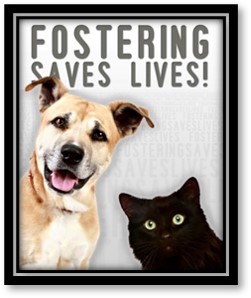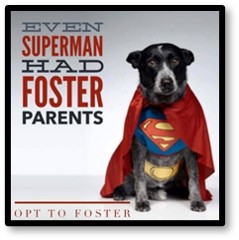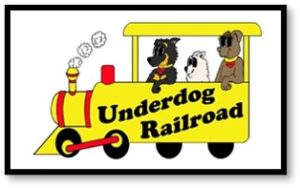Monday Author: Susanne Skinner
You do not own a dog. The dog owns you,
 Covid-19 affects more than the human population. A positive outcome in this time of isolation is people wanting to adopt or foster an animal. Of course, they also have the urge to raise chickens and put in an above-ground pool.
Covid-19 affects more than the human population. A positive outcome in this time of isolation is people wanting to adopt or foster an animal. Of course, they also have the urge to raise chickens and put in an above-ground pool.
If chickens and a pool are not part of your future, there are thousands of dogs and cats in need of a loving family. You could help save a life.
Too Many Dogs, Not Enough Homes
We are dog parents. Three dachshunds added a lot of love to our family, and we’ve felt the pain of losing two of them. Our first dog was from a breeder, but two and three were rescues.
The kids are grown, and the last of our four-legged family is twenty and blind. Knowing this, we began to have The Dog Discussion.
A puppy is not the answer for us, but fostering presented a good alternative. There is room in our hearts and our home and we can handle an elderly dog or one with medical needs.
Shelter Overload
The impact of Covid-19 was particularly hard on animal shelters. As communities mandated isolation, shelters, like other businesses, closed their doors.
Animals arrive at shelters through surrender and abandonment. Animal control officers place abandoned dogs in the first available location. Many of these are kill shelters. Rescue organizations work with no-kill shelters, bringing dogs with adoption potential into their facilities.
When shelters closed, people began abandoning their dogs—mostly in remote areas or the woods. Animals already in shelters still required care, but adoptions were suspended.
 As the country slowly reopens, there is a surge of intakes and a bigger need for temporary care. Fostering provides much-needed relief and many fostered dogs never return to the shelters.
As the country slowly reopens, there is a surge of intakes and a bigger need for temporary care. Fostering provides much-needed relief and many fostered dogs never return to the shelters.
Fostering means you take the dog home and care for it until adoption. The animal’s profile is on the shelter web site for potential adopting families. The foster family brings the dog to the shelter for a “meet and greet,” reducing the risk of a failed adoption.
It’s Not as Easy as It Looks
If you’re thinking of becoming canine foster parents there are a few things to keep in mind.
The most common reason for animal surrender is behavior. A shelter dog is a lot like a child in that they require consistency, reinforcement and patience. Barbara Woodhouse often said, “There is no such thing as a difficult dog, just inexperienced owners.”
Fostering is not easy. Before you take in a dog, it’s important to understand what your limits are. A fostered dog may require a great deal of attention and reassurance. Some of these dogs come with little-to-no history and you have to figure it out. Canine foster parents are often correcting learned negative behaviors and instilling good habits.
During fostering, it may be evident that the dog is not a good candidate for adoption. You should only consider fostering if you understand the possibility that not every dog can be made whole.
Partner with Local Organizations
 Fostering has become its own industry. Shelters rely on foster programs to provide care and companionship until a permanent home is available. Most communities have a humane society or animal shelter. If you are interested in fostering, there is an application process that includes training. Staff work with you to find options suited to your family, home and yard limits.
Fostering has become its own industry. Shelters rely on foster programs to provide care and companionship until a permanent home is available. Most communities have a humane society or animal shelter. If you are interested in fostering, there is an application process that includes training. Staff work with you to find options suited to your family, home and yard limits.
Good shelters evaluate and identify behaviors that make dogs too risky for adoption. Many allow these dogs to remain in the shelter as permanent residents.
If you can’t foster you can donate to your local animal shelter, or to one of the ethically run, national, animal welfare organizations.
Not all Organizations are Equal
You might be shocked to know that some of the biggest animal charities in the US spend next-to-nothing on the animals; salaries, fundraising and overhead eat up the millions of dollars they raise.
This list represents the best, and I was surprised to recognize only a few of them. It pays to know who is getting your donations. Shelters are not-for-profit organizations with a continuing need for assistance; everything from medical supplies to food, blankets and temporary placements for dogs and cats.
Best Friends Animal Society, a national leader in animal welfare, monitors all of the changes affecting animal rescues and puppy mills during this pandemic. Their goal of “no-kill by 2025” is to make US animal shelters no-kill facilities within the next five years.
COVID-19 has had an impact on the rescue process, as some people incorrectly believe they can catch the virus from dogs or cats. This is simply not true.
The Underdog Railroad
 I love this organization! The Underdog Railroad is a non-profit, volunteer-based organization that transports dogs. Their mission is to take dogs from over-crowded shelters and those at risk of going to a shelter and placing them in no-kill shelters with room to care for them.
I love this organization! The Underdog Railroad is a non-profit, volunteer-based organization that transports dogs. Their mission is to take dogs from over-crowded shelters and those at risk of going to a shelter and placing them in no-kill shelters with room to care for them.
They are a national transport system for adoptable dogs that is feeling the effects of closings and quarantine. Much of their work depends on short-term foster care for dogs on their journey. Check out their web site if you think you can help.
Foster Failures
When a dog or cat is so lovable his humans can’t give them up, they become part of the family. We call it a foster fail and it’s like the best kind of failure.
This weekend we welcomed Miss Lucy to Casa Caron. Lucy has been in a shelter since last November. She is an older blind girl and nobody wanted her. We originally thought to foster her, as we have a blind dog, and then realized she had to stay. She will not have a long life with us, but she will have a good one.
If you have room in your heart and your home, please consider fostering. It saves lives.

